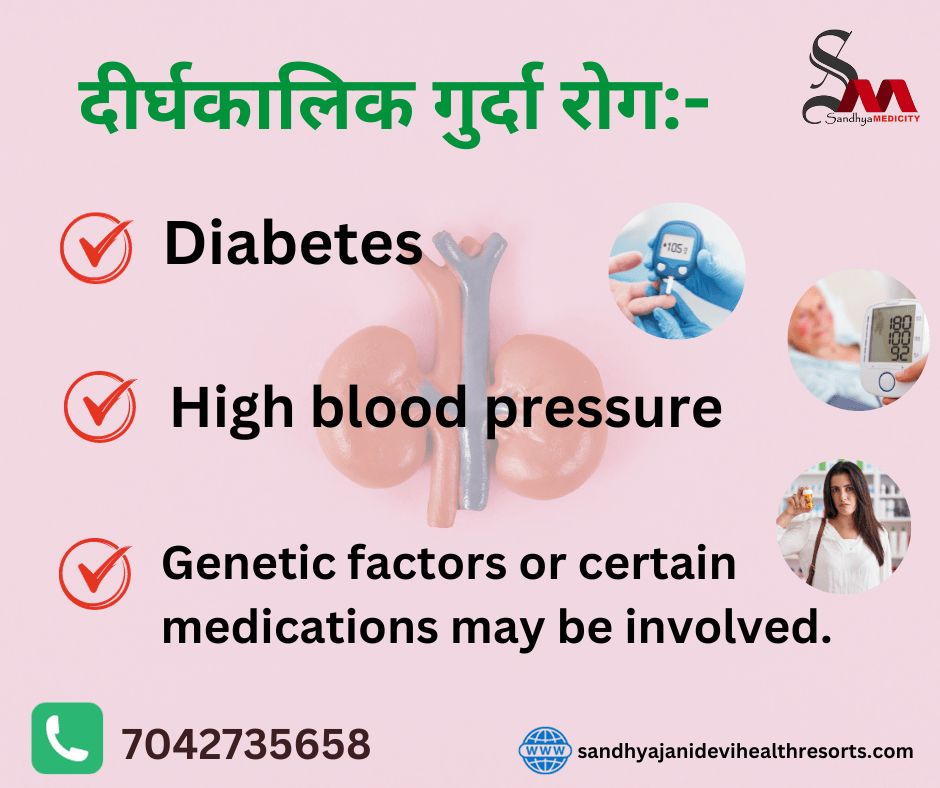Welcome back to our blog, where we discuss topics related to your health and wellness. In today’s blog, we will discuss an important topic: common kidney problems.
Our kidneys play an important role in keeping our bodies functioning optimally, but unfortunately, various conditions can arise that affect their normal operation.
Introduction to kidney
Before we discuss common kidney problems, let’s establish a foundation by understanding the importance of these bean-shaped organs.
The kidneys are responsible for filtering waste products, balancing fluid levels, controlling blood pressure, and producing hormones. These processes are important for maintaining overall health and homeostasis within our bodies.

Common Kidney Problems – Chronic kidney disease
One of the most prevalent kidney problems is chronic kidney disease (CKD). This progressive condition occurs when the kidneys become damaged over time and lose the ability to function adequately. Causes of CKD
- Diabetes
- High blood pressure
- Genetic factors or certain medications may be involved.
Early symptoms are often subtle, making it important to monitor kidney health through regular checkups.
Kidney stone
Another common kidney problem that we face is the formation of kidney stones. These small, hard mineral deposits can obstruct the urinary tract, causing severe pain and discomfort.
Factors that contribute to kidney stone formation include dehydration, high salt and oxalate-rich foods, certain medical conditions, and a family history of kidney stones. Treatment options range from conservative management to minimally invasive procedures.
Urinary tract infection (UTI)
Urinary tract infections, commonly known as UTIs, can affect various parts of the urinary system, including the kidneys. Bacteria, usually originating from the urethra or bladder, can climb up and cause infection.
Frequent urination
Symptoms such as pain during urination and cloudy urine may indicate a UTI.
Prompt treatment with antibiotics is important to prevent complications and further kidney damage.
Polycystic kidney disease
Polycystic kidney disease (PKD) is a hereditary condition characterized by the development of multiple fluid-filled cysts in the kidneys.
Over time, these cysts can grow larger, leading to impaired kidney function and complications such as high blood pressure and kidney failure. Early diagnosis and management are essential to slow the progression of PKD.
Glomerulonephritis
Glomerulonephritis is an inflammation of the glomeruli, tiny filters within the kidneys. This condition may develop suddenly (acute) or progress slowly (chronic),
This can affect the kidneys’ ability to filter waste and excess fluid. Glomerulonephritis may be caused by infection, autoimmune disorders, or certain medications. Treatment varies depending on the underlying cause and severity of the condition.
Kidney failure
Kidney failure occurs when the kidneys lose their ability to function properly. It can be acute or chronic and can result from a variety of factors, including advanced stages of kidney disease, severe dehydration, or specific medications and toxins.
Dialysis or kidney transplantation may be necessary to manage kidney failure, emphasizing the importance of early intervention and receiving appropriate medical care.
Conclusion:-
Understanding common kidney problems is essential to maintaining our overall health. From chronic kidney disease to urinary tract infections, these conditions can have a significant impact on our well-being if left untreated.
It is important to recognize the symptoms and seek professional advice to prevent further complications. Remember to prioritize regular checkups and a healthy lifestyle to keep your kidneys functioning optimally.
Ayurveda Kidney Treatment
Sandhya Jani Devi Health Resort we provide Ayurveda Treatment

